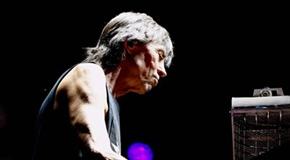Features
No Winners In Boston Lawsuit

The former Boston guitarist left the band in 1983, and Scholz argued that Goudreau was “bound to an agreement when he left the band to only call himself “formerly’” of Boston, according to Law360. Scholz claimed that Goudreau infringed upon the band’s copyright when he joined another band with Massachusetts car dealership owner Ernie Boch Jr. that put stickers on albums describing Goudreau as an “original” member of Boston.
Goudreau actually is an original member of Boston, according to his lawyer, who pointed out that the guitarist drove to New York City with Scholz for their first showcase in the mid-1970s before departing in 1983. Scholz’s attorney claimed “Barry Goudreau has been complicit in the hijacking of the Boston trademark,” according to Law360. “It stands for the unique nature and distinct quality of Boston’s music. Like all great acts, it stands for values and a lifestyle.”
Goudreau’s countersuit claims the lawsuit deprived him of his rights to play music and call him a former member of Boston, as he says the contract guaranteed. Attorney Jeffrey Baker told the jury the reason Scholz sued was because “he now realizes he signed a bad royalty agreement in 1976,” one that reportedly gave Goudreau 20 percent of all royalties from the first two albums. “It has been an effort by Mr. Scholz … to try to grab back his royalty rights on the first two albums,” Baker said, according to Law360, which also notes that Baker is not the attorney who filed Goudreau’s countersuit. Goudreau testified that it was Boch who insisted on putting the term “original” on promotional materials for the band Ernie and the Automatics.
“I told Ernie from the first show that I needed to be billed as ‘formerly of’” Boston, Goudreau reportedly testified.
“Despite the jury’s verdict on our trademark violation claim, today’s outcome was satisfactory because it reinforces a clear message for musicians and artists across the nation,” Scholz later said in a statement. “Trademark law exists not just to protect the rights of those who create, but to preserve the legacy and value of their art. Creative work must always be defended when confronted by infringement or misuse.”